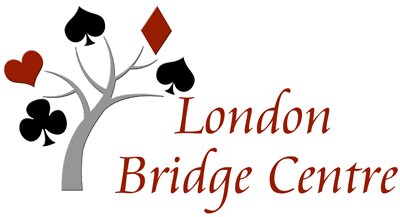Board Members and Officers
-
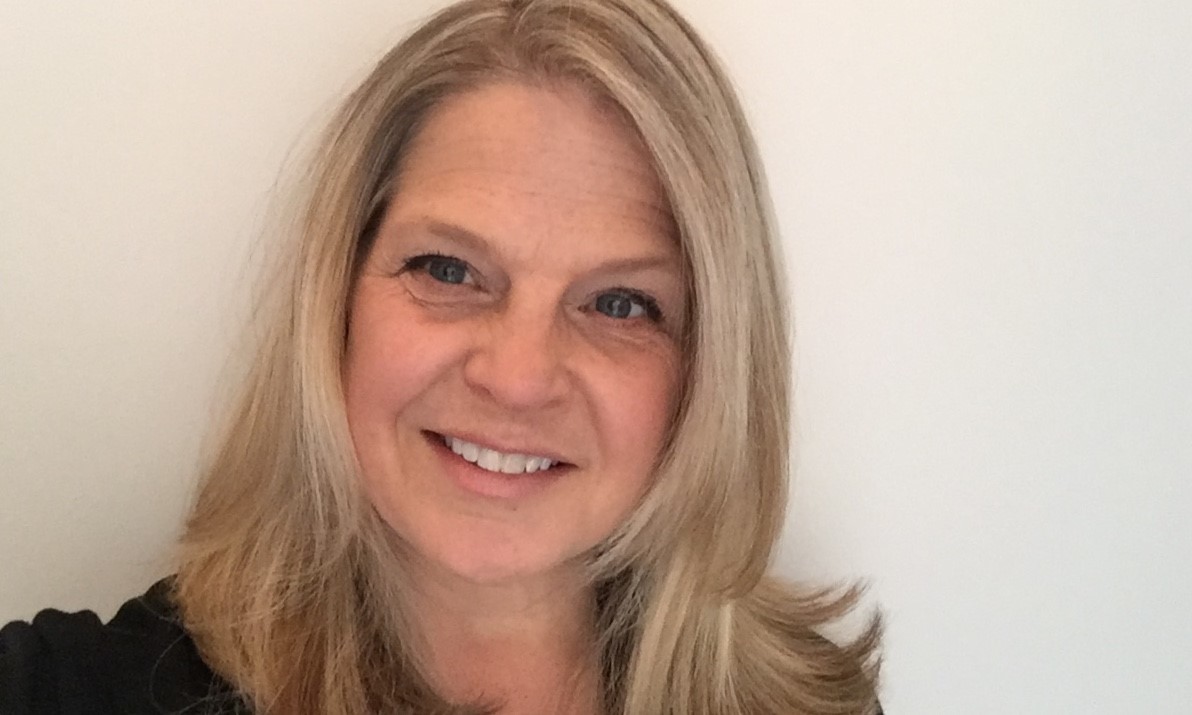
Angie Francolini
President - 2022 to 2025
I was introduced to the game of bridge by my in-laws, Geno & Joan. The game is a great way to learn the true character of the prospective daughter-in-law. Bridge offers many opportunities to showcase your temperament, smarts, ego, graciousness and calm. It is as much a form of art as science, especially when playing duplicate bridge.
Recently retired, I decided to resume the game of bridge. This time, I was interested in studying the game and digging into the science. So LBC was the perfect place to quench my thirst for knowledge. I took several lessons and practiced Saturday mornings before being encouraged to join the duplicated tables for real. I was hooked and became an ACBL member on the drive for those part-points. I’m still an eager novice - knowing enough to be dangerous to both my partnership and on occasion opponents. The more I learn the more I appreciate the art of the game, the judgment that takes years to master.
Bridge is an elegant, joyful pastime. I am grateful to Geno & Joan. I am keen to help others discover the wonderful world and community of duplicate bridge. -
Janine Higgins
Past President 2023 to 2026
My parents taught my brother and me to play bridge when we were very young, so that they could play. I played in a ladies bridge club for 30 years after moving to London, but didn’t advance beyond ‘kitchen bridge’ until I took lessons from Richard Fokes and went to my first tournament when I got hooked on duplicate bridge. To me bridge has the perfect mix of socializing and competition. I love going to tournaments because you can play a lot of bridge in a short time. I am very proud to be part of a member owned club, and have made many friends here.
I practised law for a dozen years at Siskinds, then left the practice of law to set up shop as a mediator. I quickly added teaching courses, facilitation and life coaching. I am mostly retired from mediation and facilitation. My primary activity now is teaching courses in leadership, emotional intelligence, positive psychology, assertiveness, and conflict management, for Western Continuing Studies and for organizations.
Between us, my husband Ward and I have five children and seven grandchildren. We love to hike and completed the Bruce Trail over six years a while back. We also love travelling and spending time at our cottage in Port Franks. -
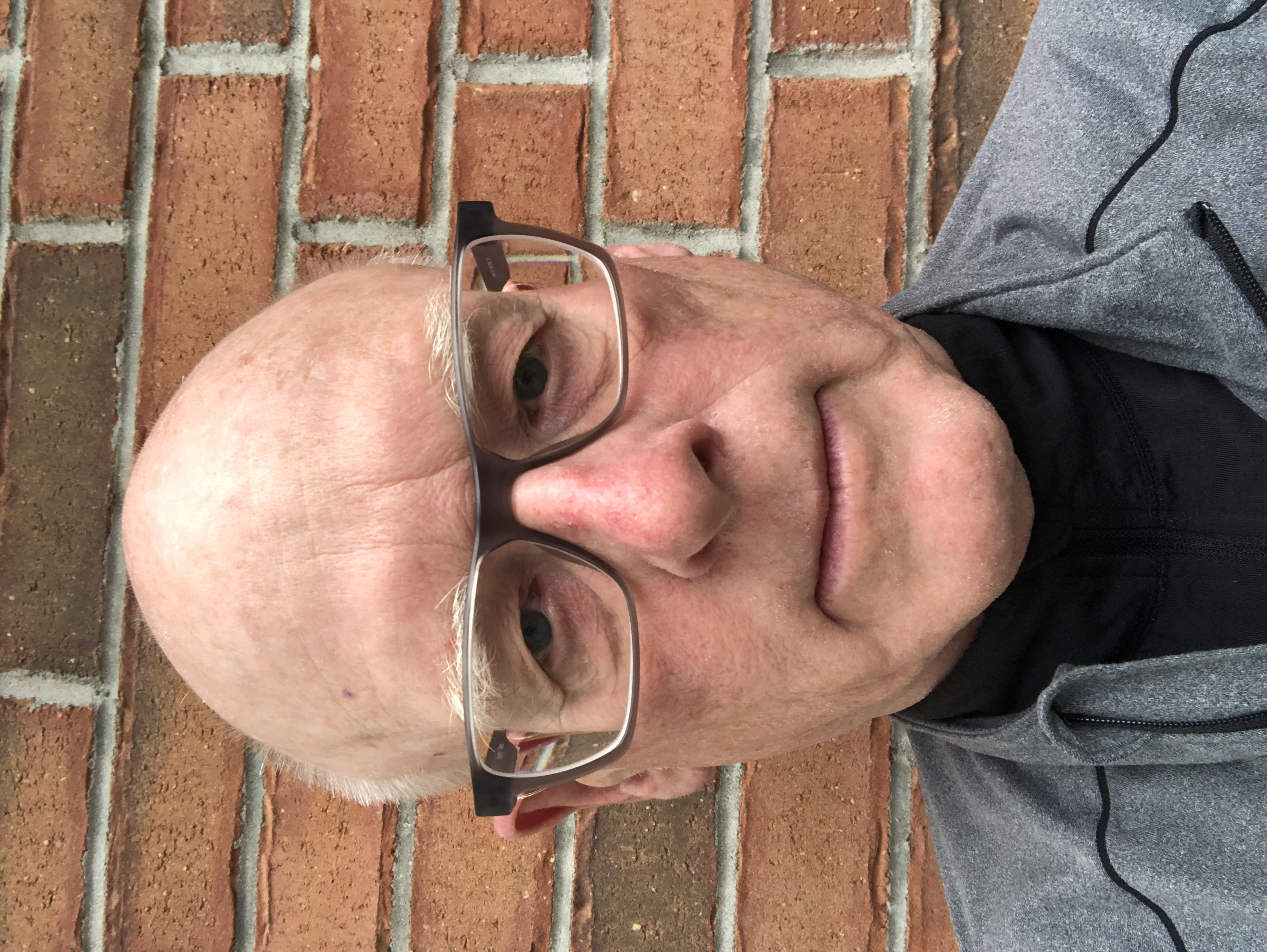
Tom Jolliffe
Vice President - 2023 to 2026
Much of my parent's social life revolved around playing bridge. As a child, they often got me to play dummy. In later years, Saturday night bridge took on a decidedly Canadian theme and was played in four sessions - before the hockey game; first intermission; second intermission; and, during Juliette!
I love the social interaction and the camaraderie of the game. As well, the intellectual challenge of trying to continually improve your bridge skills is unparalleled.
Back in 2015, I felt the London bridge community was underserviced and so becoming involved on the Board was a way to broaden opportunities for all players to enjoy the game. I wanted to help build the London Bridge Centre into one of the leading bridge clubs in Canada. After a couple of years of absence from the board, I would like to return to help continue the excellent opportunities that are offered to bridge players by the London Bridge Centre.
Before focusing on bridge, I spent my career in the investment organization of London Life and then managing a credit union. I complement my bridge passion with another activity in which I'm equally passionate, cycling. I have the ambition to cycle from Budapest to Lisbon plus to circumnavigate France by bicycle. I've undertaken over 15 cycling trips in Europe and am only about halfway through these two objectives. There are so many roads and so little time. I'll just have to keep cycling!- tom.jolliffe@rogers.com
- 5196392206
-
Al Edwards
Treasurer - 2023 to 2026
I first learned to play bridge during university. I spent many hours in the Maths lounge at U of Waterloo playing bridge, but still managed to graduate! I started playing duplicate after taking lessons from Arlene and earned my first fraction of an ACBL masterpoint in 2003.I enjoy the challenge of analyzing the clues and "solving" each hand in communication with partner. The social aspect also adds significantly to my enjoyment of the experience.
Sue and I have two daughters and now a granddaughter and grandson, and we are fortunate to have our extended families nearby. I'm a retired actuary, having thoroughly enjoyed my career with the London Life, Great-West Life and Canada Life group of companies.
Volunteer activities in my community and my profession have also been a priority. I'm also an avid golfer.
Sue and I were part of the founding Board of the London Bridge Centre in 2015, and have continued to be involved with LBC's finances since then. I have returned to the Board to assist in addressing the major challenge of returning to sustainability post-pandemic.
When I'm not playing golf or bridge, I've been known to treat family and friends to a barbeque topped off with one of my banana cream pies (my Mom's recipe). And, my search for a scotch that I don't like continues... -
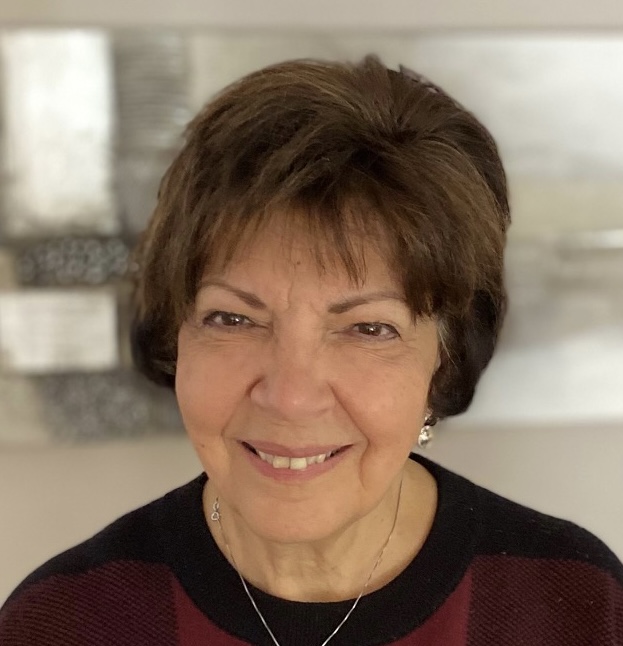
Danielle Galbraith
Secretary - Director 2022 to 2025
I grew up in a family that always enjoyed playing cards and board games. Although my parents and brothers played bridge, I was not drawn to learning the game until I lived in Southampton, Ontario. I had worked as Administrative Assistant for Ontario Hydro for 17 years, but I found life quiet, so I decided to learn kitchen bridge. While I was raising my family, I continued to play whenever there was a foursome around. It wasn’t until about 5 years ago, I happened to call Brian Rice from his website, to enquire about the bridge he was offering at the Westmount Library. Twenty minutes later I was walking into a room of 26 tables (so Brian has told me) of complete strangers and was asked to be Brian’s partner. Everyone was so welcoming and patient with me, especially Brian, that I was hooked.
As I was raising my family, I had planned on following my love of interior decorating, but instead found myself advocating for children with disabilities and their families. Our group was able to form a Board of Directors and receive government funding to open a home which provides respite for families. I was fortunate to participate on different Boards and committees in London on a volunteer basis which resulted in a full-time but very rewarding commitment.
I enjoy travelling and I still like interior decorating, but for my home only.
I look forward to my time on the Board of the London Bridge Centre. I am so happy to be able to do my part for a group that has provided me with many new and friendly acquaintances. -
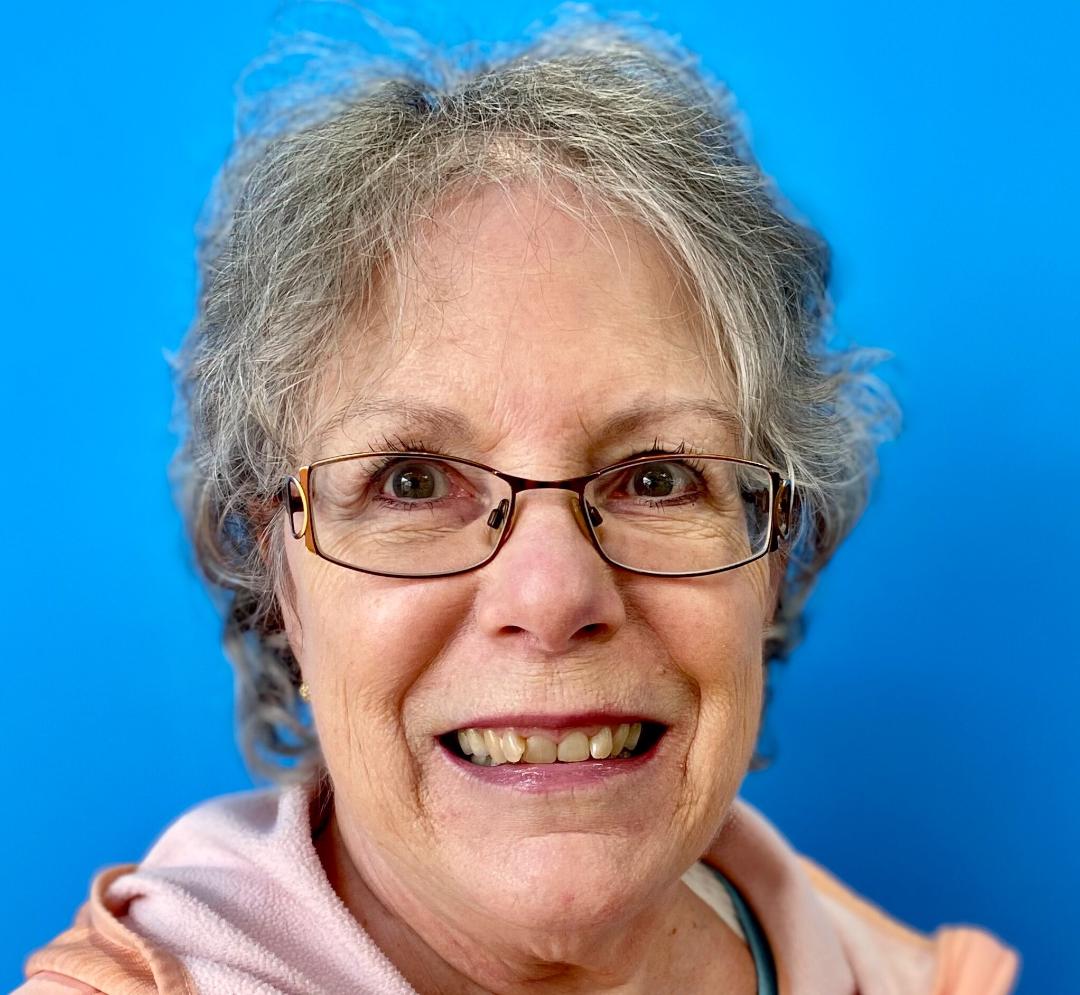
Deb Ellison
Membership Chair - Director 2024 to 2027
I began playing bridge when I was 19 years old and working in an office with four men who played bridge each lunch hour. If one of them had to run an errand at lunch, I was co-opted into subbing. What I remember most about that time was praying that I didn’t have any points so I didn’t have to say anything! While the experience was somewhat traumatizing, interest in the game must have stuck because I continued to play.
My husband and I played kitchen bridge, eventually moving on to duplicate. What struck me immediately about duplicate was the fairness of it. You could have no points all night and still get a good score if you defended well. I didn’t undertake competitive bridge until my friend, Carol Wigle, encouraged me to try out the London Bridge Centre. I was a bit fearful as I didn’t feel that my skills were any match against the “experts” that I was bound to come across in a serious bridge club. However, what I found was a warm environment that welcomed players of all abilities. The friendships that I have made at the club will last for many years.
I retired as Quality Assurance Manager from Family and Children’s Services in St. Thomas in 2016, which has allowed much more time to devote to honing my bridge skills through excellent lessons with Audrey. I have two grown daughters, one who lives in British Columbia and one who lives here in London.
I believe that, as member run club, we each need to give something back to have the club continue to operate excellently. I am pleased to do my part as a member of the Board of Directors. I am looking forward to learning more about the “behind the scenes” operations of the club and hope I can contribute to maintaining excellence and encouraging the next generation of bridge players. -
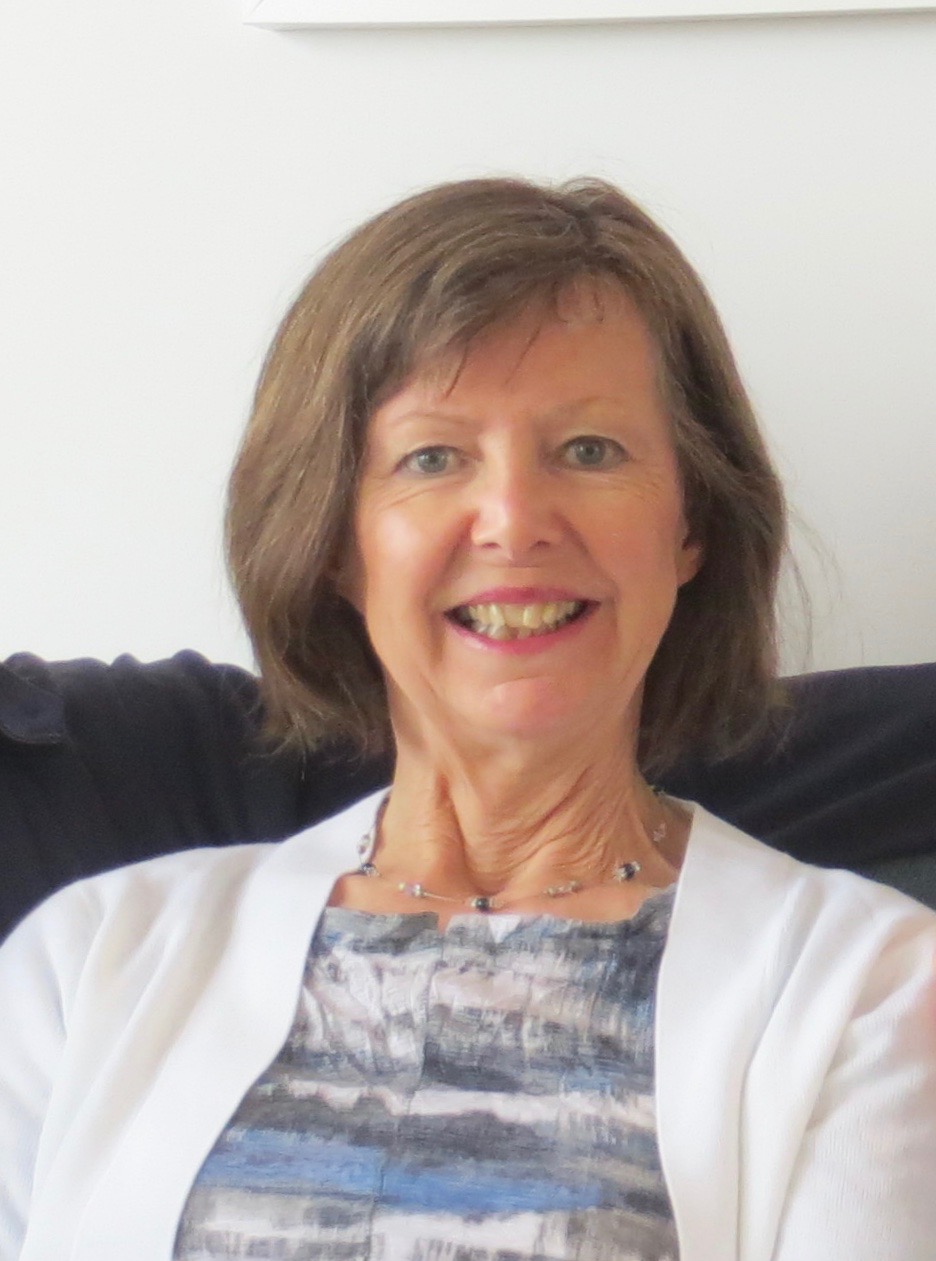
Alison Marr
Chair Education Committee - 2022 to 2025
I played a bit of social bridge in the early ‘70s in England where I grew up, and it wasn’t until 2015 when I started to wind down my family practice that I thought of taking it up again.
I was fortunate to find Arlene Lundgren teaching bridge around a coffee table in Masonville Mall and she deftly showed me how much fun it was to learn some of the intricacies of the play of the hand. My friend Judy Stirling had been extolling the virtues of the new London Bridge club and after a couple of beginner classes here I was hooked.
Beyond bridge, (and online Funbridge which is wickedly addictive), I love to golf, and ride horses. Our family is widely spread (England, Ireland and New Zealand) and we are fortunate to be able to travel a lot to spend time with them. I’m entering the era of being a grandparent, which is fabulous as all fellow grandparents know.
Thank you for inviting me to be a board member. I have very much enjoyed my membership over the past 3 years, find the club very well run and welcoming, and hope I can contribute to its ongoing success.
I am on the Education Committee so please let me know if there are any subjects or approaches that you would like the Committee to organize beyond what we are currently offering. -
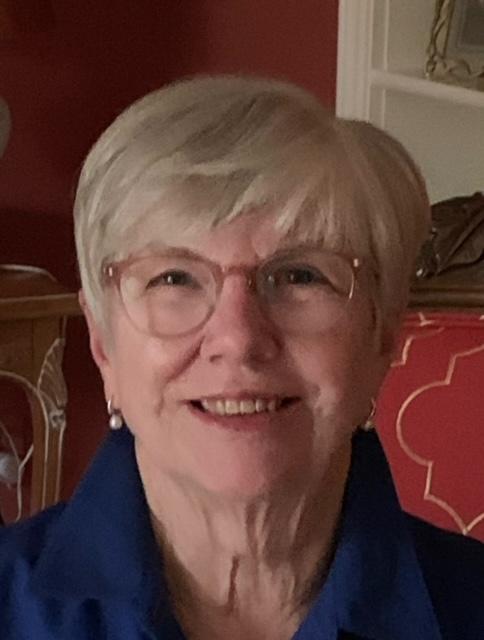
Sandra Letton
Director - 2023 to 2026
I don’t actually ever remember “learning” bridge as much I remember “playing” bridge. Like
many others, my first introduction to bridge was through my parents in PEI. They played
kitchen bridge and I would sit in for my mother while she prepared the evening “lunch”. In the
60’s, in nursing school in Halifax, I played again mostly after we got off a 3-11pm shift. But I
can also recall being occasionally wakened around midnight to make up a “fourth”! Later, in
university, where I met my husband Don, our Friday night dates would consist of bridge with
friends and a six-pack.
It wasn’t until many years later that I took my first set of lessons from Arlene Lundgren,
ultimately drawing me to the London Bridge Centre. The opportunities to take lessons,
participate in the Tuesday bridge labs with Peter and eventually play in sanctioned games were
amazing. I love the challenges of the game and the social connections that are a natural result
of playing. And now with the the miracle of on line bridge, we often spend Sunday afternoons
playing with friends across the country.
In 2010 I retired from a very rewarding nursing career which encompassed bedside nursing,
teaching nursing and over 30 years in hospital administration at St. Joseph’s Health Care,
London.
Other than bridge I love to travel, golf, hike, read and I still play some squash. Don and I spend
2-3 months every summer at our cottage on the beautiful Nothumberland Strait in PEI.
LBC is a valuable community resource and I am honoured to serve on the Board of Directors. -
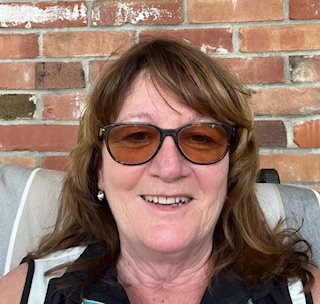
Linda Tindale
Director - 2024 to 2027
My husband played bridge at university and dragged me to a couple of games when we first got married. I had played Euchre but that was the closest thing to bridge I can think of. After that many years passed where we were both focused on raising a family and working full time. Then came retirement. One evening while entertaining, my friend mentioned that she was going to start a beginner bridge class at the London Bridge Club (LBC) that coming Saturday. I decided to join her. I am so happy about that decision. I continue to take the courses offered at LBC. Playing bridge certainly helped to keep me sane during the pandemic and continues to stimulate my mind. In addition, the social aspect is wonderful - I have met so many lovely people.
Graeme (my husband) and I met roller skating in Toronto. We got pretty good at it. Not quite Tessa Virtue and Scott Moir, but we certainly enjoyed dancing on skates. We married and we moved to Belleville for two years, then on to London in 1985. We have two lovely daughters who are animal lovers. All together we have two dogs (both Golden Retrievers), two horses and one cat.
Prior to retirement I enjoyed a long career in the financial industry and I have always enjoyed math and numbers. My latest position was helping people understand and work with their investments to meet their needs- it was a very satisfying role.
I enjoy playing golf, gardening and obviously bridge. I am excited to be a part of the LBC and I look forward to contributing to the success of the club and helping to bring new people to our bridge family. -
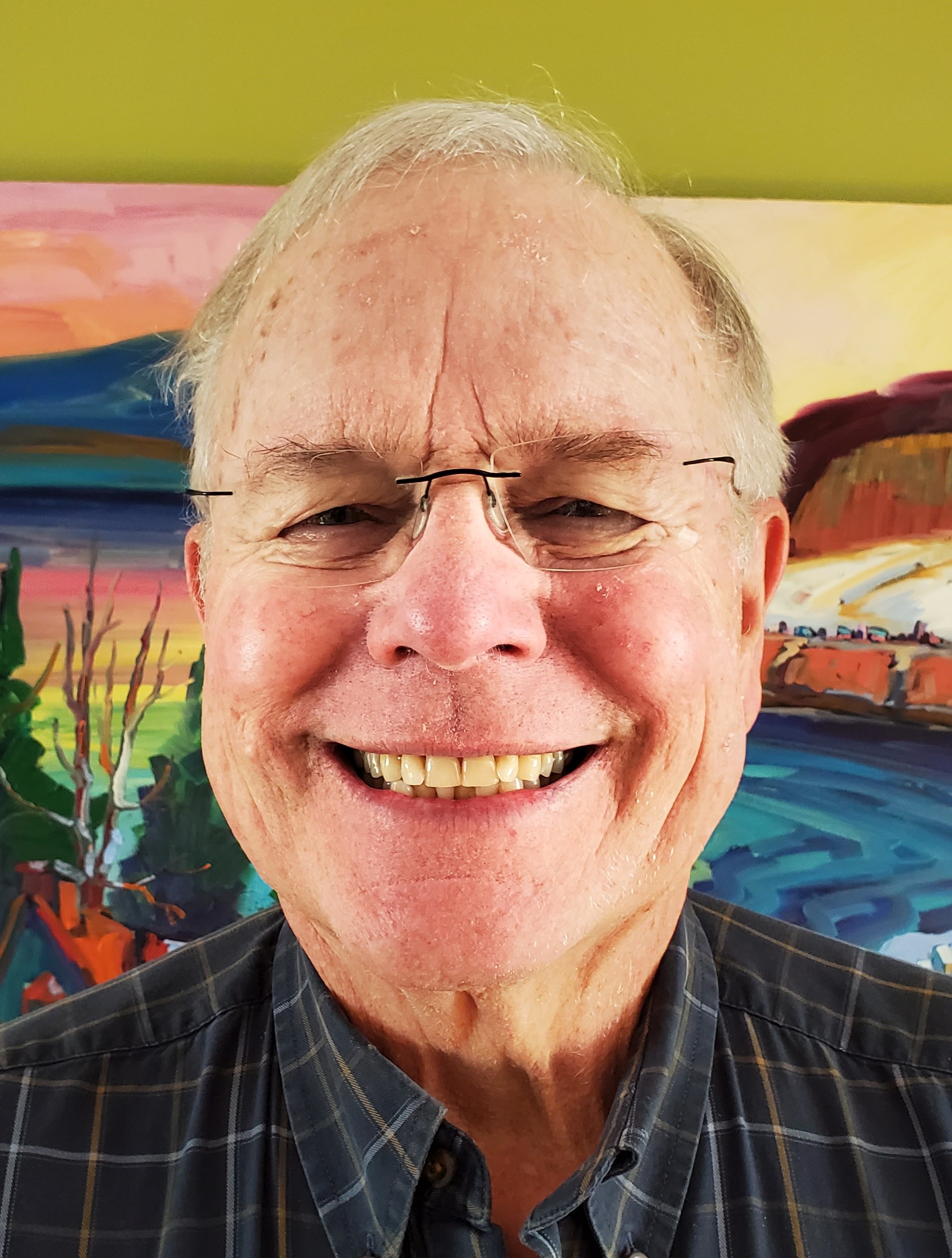
Don Hambley
Director 2022 to 2025
During my formative years in Hamilton, I was aware that my parents played social contract bridge with a group of friends. They had a contest whereby everyone donated a dollar into a pot and when an individual won a trick with the two of clubs, that person took home the money. If no one claimed the prize during the evening, the pot continued to grow. I remember the laughter and enjoyment that everyone had and came to the interesting conclusion that an alcoholic drink or two with your friends certainly improved one's game.
But I didn't take a personal interest in the game until I joined a bridge club in high school where I learned the fundamentals. At Western, a crew played bridge for serious money all day in the College of Science cafeteria. I would watch on occasion but didn't play the game at all during my years at UWO since my leisure time was taken up as I swam competitively for the Stangs.
Once my career in teaching was well established, I started playing kitchen bridge with three of my neighbours. As my parents had demonstrated years earlier, snacks and scotch were consumed to enhance our play!
One evening, I received a call from an old Western chum and was asked if I wanted to play duplicate bridge as an alternate for the Banting Bridge Club. Intrigued, I agreed and was introduced to the wonderful and challenging game of duplicate bridge. The members were primarily pedagogues and were a joy to play with. In time, I became a Thursday evening regular and met Jerry Reid and Jack Howe. As well, Dwight Bender and Barry Onslow were occasionally alternates. The social component was very important as well as we took turns hosting a game of Liar's Dice after the bridge session was over. Fridays were always challenging at work.
My next move up the competitive ladder was playing at Richard Fokes' Bridge studio and finally at the London Bridge Centre. I do play in local sectionals at times but becoming a Life Master is not a primary goal in my world. I have gleaned so much pleasure over the years from the game of bridge and I feel it's an appropriate moment for me to participate at an administrative level. I have found a perfect balance for maintaining my mental acuity with bridge and my physical well-being through walking and swimming. -
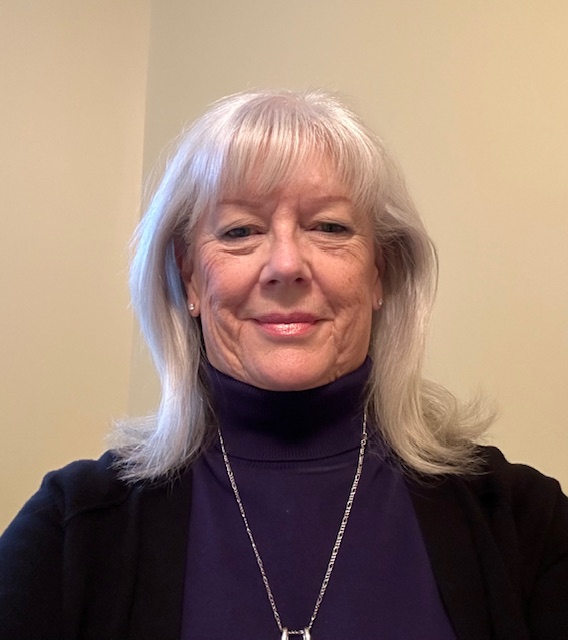
Karen Wilson
Director 2024 to 2027
I was aware of the game of bridge while growing up as my parents and grandparents played, but never did more than take over as dummy when someone had to leave the table. My exposure to bridge took on an entirely different meaning when I met my husband, Dwight Bender. I soon discovered how much he enjoyed the game and how complex it is. In 2014, Dwight was exploring ways to facilitate the growth of bridge in London with Al and Sue Edwards. When the group of volunteers came together to launch the London Bridge Centre in 2015, I offered to help with administrative tasks and subsequently served a year on the first Board of Directors.
In the fall of 2023, I took the plunge into bridge by taking Jane King’s Bridge Basics I course. I was hooked! I love the complexity and strategy of the game and while I know I won’t ever be a great player, I love the game. I’m convinced it’s a great way to keep your brain healthy, too. Two of the six recommendations for brain health from the Mayo Clinic include keeping your brain active and socializing. Bridge certainly has that covered!
London Bridge Centre is a fantastic club because of the amazing members, many of whom give of their time and talents to make it such a welcoming and well-run organization. I’ve met some wonderful people at the bridge table and count a number as good friends. Now that I am more familiar with the game itself I hope to contribute to the club by serving on the Board of Directors as a player, rather than an observer.
I retired from health care fundraising in 2014 and Dwight and I have enjoyed retirement together travelling, hiking and spending time with family and friends. We especially enjoy the joys of being grandparents. Before you ask, do we plan to play bridge together?...NO! -
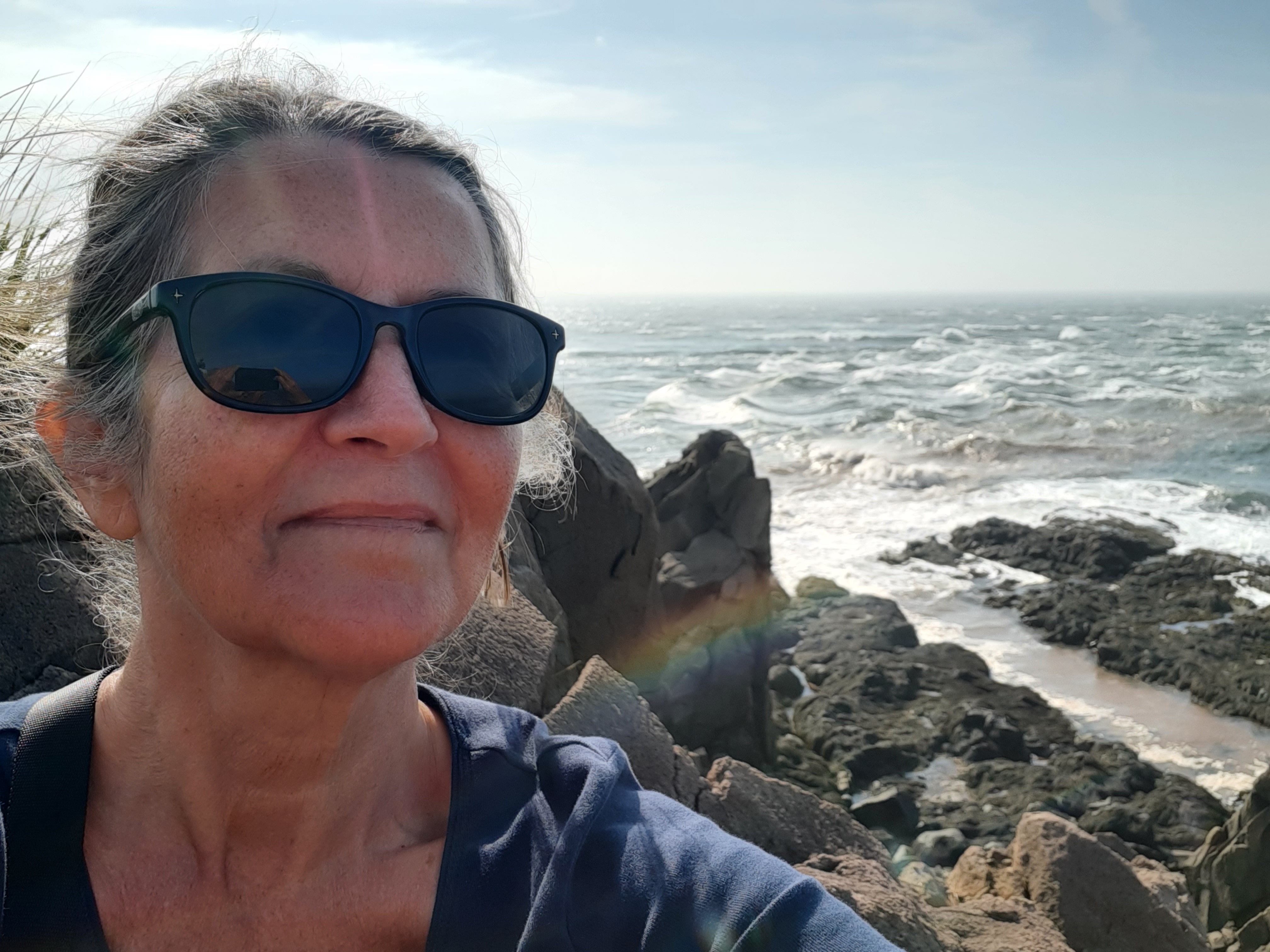
Lorna Graham
Director 2024 to 2027
I was in my late teens when I started playing bridge with my parents and two of my five siblings. Over the next ten years, we’d play whenever we could make a foursome. Forty years later when I retired in late 2022, I decided to return to bridge. I discovered it’s certainly not the game I remembered! Thanks to the Tuesday bridge lab, Lost and Found, and the four courses I have taken, I am slowly learning the complexities of the game and having a lot of fun doing so. The people at LBC are wonderful, which is why I much prefer in-person bridge to online.
I joined the LBC board because I believe it is important for every member of an organization to contribute in some way. As a board member, I enjoy hearing different opinions and ideas on issues of importance, because it helps us to make informed decisions.
I was born and raised in London, but for much of my adult life I lived in various small communities. I held many different jobs over the years, the last was psychologist. I am an avid reader and I try to stay active with yoga, aerobics, Pilates Reformer, cycling, and walking. -
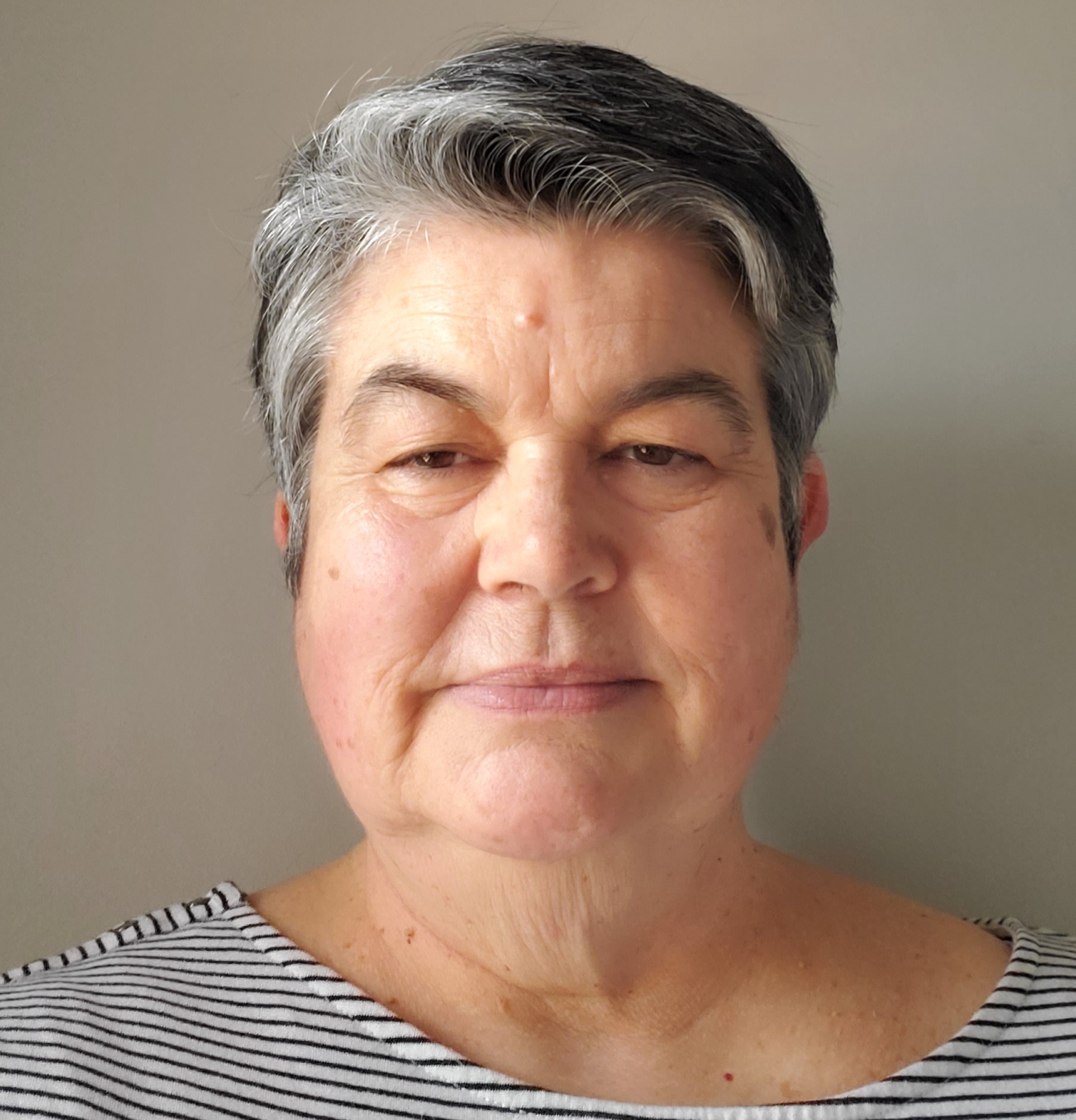
Penny Finneron
Newsletter Editor
As a teenager I played bridge during spare periods in high school; both of my parents were keen players. Until I retired five years ago, I didn’t play at all as no one my age played. A few weeks after retiring, I walked into a bridge class and met some women who have become very good friends.
I was keen to meet new friends when I moved to London two years ago, in fact while searching for a house I asked the real estate agent “where’s the bridge club”? I’ve received a very warm welcome in London and especially at LBC.
Online bridge has kept me connected to others and my mind occupied during the pandemic.
I’m the proud grandmother of two-year-old Christopher.
If you have any ideas for future articles please don’t hesitate to contact me via email. -
Bruce Moor
Ex Officio - Manager of Bridge Operations
Like others of my generation, I learned to play bridge at home, and gained a little skill playing duplicate as a graduate student at Queen’s University in Kingston. Also like others, bridge remained an occasional recreational activity through the years, as a career in research at Queen’s and Western, and the demands of raising a family (2 children, a daughter and a son) took precedence. It was a social bridge group at First-St. Andrews United Church that was the catalyst to re-igniting my interest in the game, and it was also members of that group who steered Susan Wark and I to Fokes to learn to play duplicate. After little more than a year, with very little playing experience, I found myself heading north to Haliburton in the company of Dwight Bender, Peter Tuttle and Terry Wright to take the ACBL Club Director’s course, and the rest, as they say, is history.
Although being a director can have a negative impact on one’s ability to progress as a player, I have found enjoyment in this role, making numerous new friends and gaining an appreciation for the importance of the game in the lives of all who play on a regular basis. As the London Bridge Centre develops into a full-featured, modern bridge club, the opportunity to contribute as a club director to an even more vibrant bridge community in London is a major reason for being on the LBC Board. It is early in the journey, but it is a journey that promises numerous rewards – social, intellectual, recreational and, every once and a while, some gold points! -
Susan Edwards
Accountant and former Treasurer
Growing up in a home where lots of card games were played, it was inevitable I would learn to play bridge at some time. I played some bridge as a teenager. Then life as a student at Queen's University, a career as a Chartered Accountant and a second career raising two daughters took over. Around 2003 I took lessons from Arlene Lundgren and that opened up the world of bridge to me again.
The mental exercise of the game is wonderful and bridge also provides great social benefits. I got involved with founding the London Bridge Centre because I really want bridge to continue in London.
I feel a member-owned club allows all players to contribute to the success of the club. Our goal is to have a great facility with a welcoming atmosphere for both experienced players and those just discovering this wonderful game!
When I'm not playing bridge I love spending time with our wonderful grandchildren.
